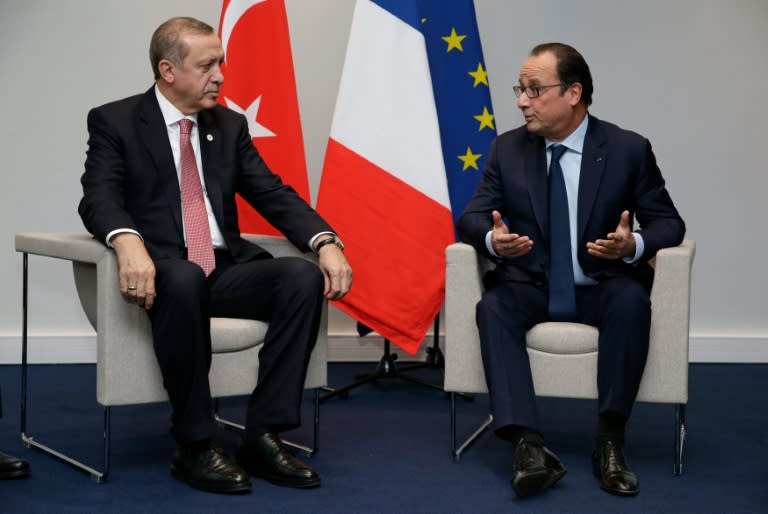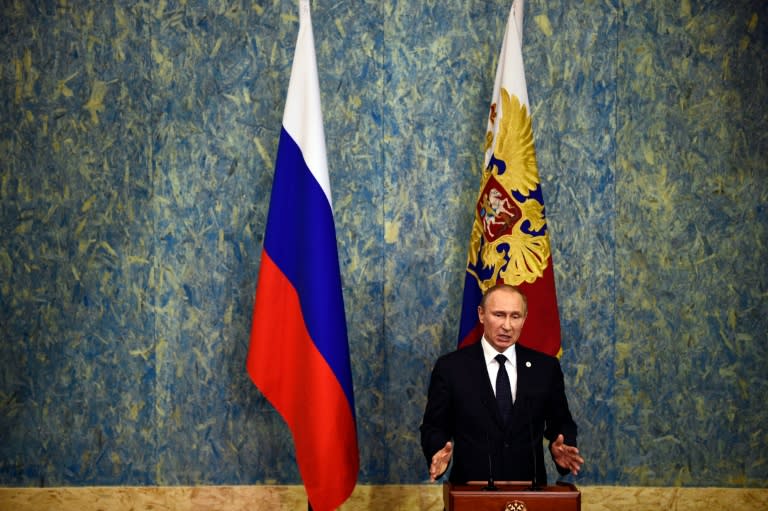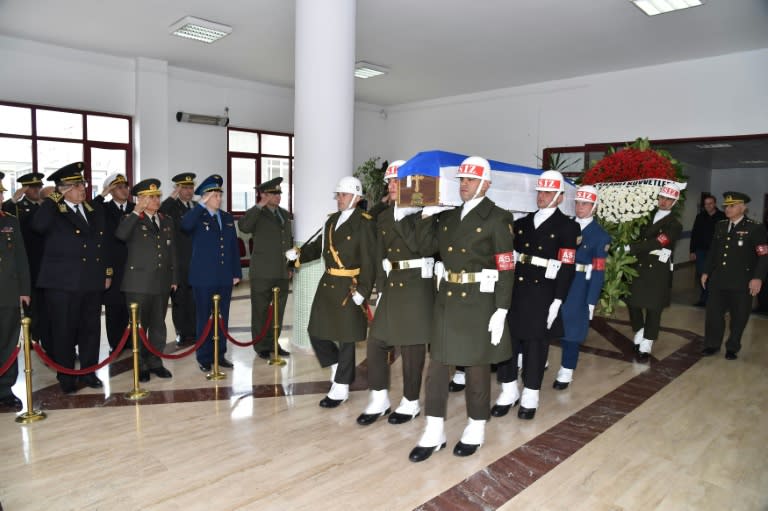Turkey: adversary or ally of IS?
For Ankara, the Islamic State (IS) group is an officially-listed terrorist organisation which poses an immediate threat to Turkish territory. But for critics, Turkey directly encouraged the rise of the group in Syria and has even profited from its success. The criticism against Turkey is now led by Russian President Vladimir Putin who has made a string of angry allegations about Ankara's alleged collusion with IS in the wake of the shooting-down of a Russian warplane on the Syrian border by Turkey on November 24. Who is telling the truth? Has Turkey ever backed IS? Ankara's critics accuse it of tolerating or even aiding IS as a useful ally against Syrian President Bashar al-Assad, whom President Recep Tayyip Erdogan wants ousted. Turkey angrily rubbishes the suggestion it has helped the group, with Erdogan saying IS has "nothing to do with Islam" and noting Ankara has classified it as a terror group since its emergence. Meanwhile, Turkey has been rocked by three attacks blamed on IS this year: On a rally of the pro-Kurdish Peoples' Democratic Party (HDP), a suicide bombing in the mainly Kurdish town of Suruc near the Syrian border, and the Ankara bombing on October 10 that killed 103. But according to reports that were never denied, back channel talks between IS and Ankara ensured the peaceful release of 49 staff kidnapped by the jihadists from Turkey's consulate in the northern Iraqi city of Mosul in June 2014. In October 2014, the US Vice President Joe Biden drew Erdogan's ire when he said that Turkey had been "so determined" to oust Assad that it funded and supplied anyone who would fight the regime, including jihadists. Does Turkey trade oil with IS? In his weightiest accusation yet against Turkey, Putin on Monday accused Ankara of shooting down the warplane to protect exports of oil from IS-controlled parts of Syria to Turkey. He said Russia has information that oil from IS-controlled areas of Syria is "transported on an industrial scale to Turkey". Prime Minister Ahmet Davutoglu rejected the accusations as "baseless" while Erdogan said he was ready to resign if any oil trade between Turkey and IS was proven. "If there's such evidence, then put it on the table," the Turkish strongman said. IS controls almost all of Syria's major oil fields, including all the fields in the eastern province of Deir Ezzor, which was Syria's leading producer, including its two main fields of are Al-Omar and Tanak. Before the war, Al-Omar produced some 30,000 barrels a day. "We don't know in what quantities or through which companies but it is clear that Daesh (IS) sells some of its oil to Turkey," a Western diplomatic source told AFP. Nihat Ali Ozcan, security expert at Ankara-based TEPAV think-tank, said there has been an increase in cross-border oil smuggling on the Syrian border because of Erdogan's open-door policy towards Syrian refugees, but it was not necessarily IS oil. "It was happening even before the emergence of IS, through a network of Syrian and Turkish smugglers who have long existed there," he told AFP. "It's not on commercial scale and getting smaller and smaller now that Turkey is boosting its border security," he said. Is Turkey letting jihadists into Syria? Turkey was long criticised by its Western allies for failing to stem the flow of IS militants across its 911-kilometre (566-mile) border with Syria. But Ankara is taking firmer action against IS and calling on the West to boost intelligence cooperation for a more effective fight following a spate of attacks on Turkish soil as well as the Paris assaults. There has been an increase in raids against suspected jihadists in cities including Istanbul in recent months while the army now almost daily reports arresting jihadists seeking to cross the border. According to Turkish officials, some 26,600 suspected jihadists from across the world are on an entry ban list. Turkey is also building a concrete wall along the border with Syria in its southern Hatay province. A Western diplomatic source said Turkey was starting to "answers to our questions" after the November 13 Paris attacks left 130 people dead and were claimed by the Islamic State group. "We are far from an efficient cooperation. But that there has been an improvement is indisputable."




